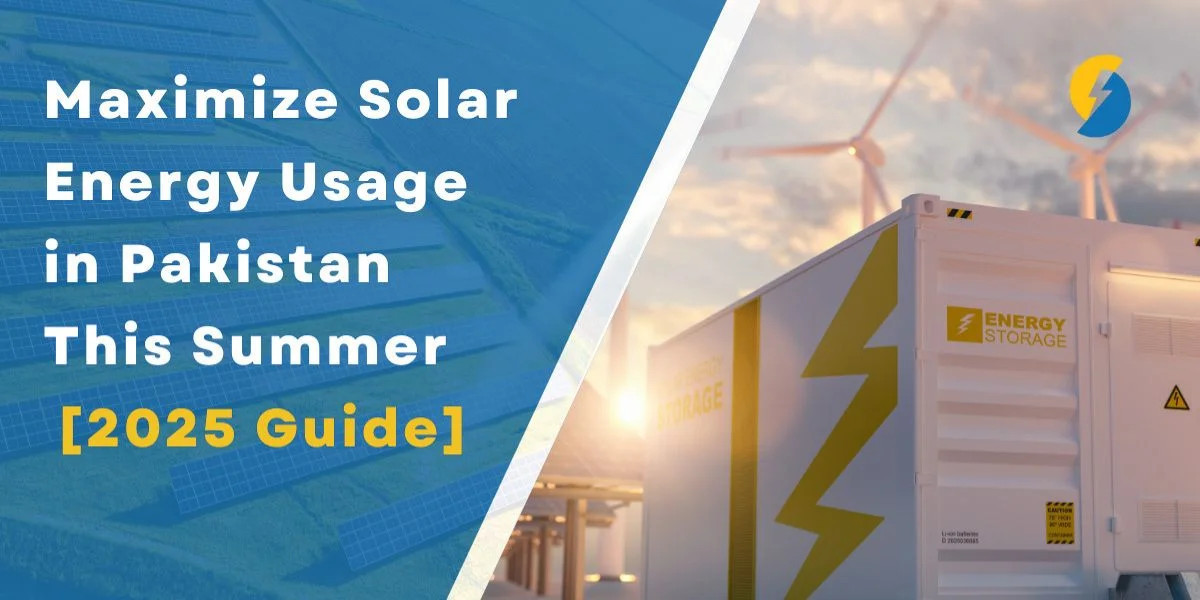With over 300 sunny days a year, Pakistan is ideally positioned to lead a solar revolution. The country’s growing energy demand, frequent power outages, and rising fuel costs make the shift toward renewable energy not just desirable—but necessary. By leveraging the full potential of solar energy, Pakistan can unlock affordable, clean, and sustainable power for all.
Here’s how individuals, businesses, and communities can maximize solar energy usage and drive Pakistan toward energy independence.
1. Rooftop Solar for Homes and Businesses
Installing rooftop solar panels is one of the easiest and most cost-effective ways to harness solar energy. Whether it's a home, shop, or office building, a solar system significantly reduces electricity bills and provides a reliable power source, especially during load-shedding. With rising utility costs, going solar offers both energy security and financial savings.
2. Take Advantage of Net Metering
Pakistan’s net metering policy allows solar panel owners to send excess electricity back to the grid in exchange for credits. This means homeowners and businesses can actually earn from the sun, offsetting their electricity costs and contributing to the national grid. It's a win-win for energy users and the environment.
3. Solar-Powered Agriculture
The agriculture sector in Pakistan can benefit tremendously from solar energy. Solar-powered water pumps eliminate the need for diesel generators, reducing operational costs and ensuring steady irrigation. With increasing climate-related water challenges, solar pumps offer a sustainable and cost-effective solution for farmers across the country.
4. Adopt Solar Water Heating & Cooling Systems
Beyond electricity, solar technology can also be used for heating and cooling. Solar water heaters are perfect for homes, hospitals, and industrial setups, while solar-powered air conditioning systems reduce pressure on the grid during peak summer months. These solutions reduce dependence on electricity and offer long-term savings.
5. Invest in Large-Scale Solar Projects
Pakistan is already seeing growth in utility-scale solar parks, particularly in regions like Punjab and Sindh. These projects are feeding megawatts of clean energy into the national grid and creating job opportunities in engineering, installation, and maintenance. Large-scale solar is essential for reducing fossil fuel dependence and lowering national energy costs.
6. Financial Support & Government Incentives
Solar adoption can be accelerated through affordable financing options such as solar loans, leasing programs, and pay-as-you-go models. Government subsidies and tax relief for solar investments also make installations more accessible to middle- and lower-income households. These policies are vital to scale up solar energy usage across all sectors.
7. Educate & Empower
Community awareness is crucial to promote solar adoption. Workshops, school programs, and social media outreach can inform citizens about the benefits of solar energy, how to maintain their systems, and how to apply for net metering. Empowering local technicians with training will also ensure quality installations and system longevity.
Final Thoughts
Pakistan’s energy future is bright—literally. With smart investment, public awareness, and the right policies, solar energy can transform how we power our homes, farms, and industries. It's time to embrace the sun and transition toward a cleaner, greener Pakistan.
To learn more about making the most of solar technology, visit Maximize Solar Energy Usage—your guide to a sustainable energy future.







